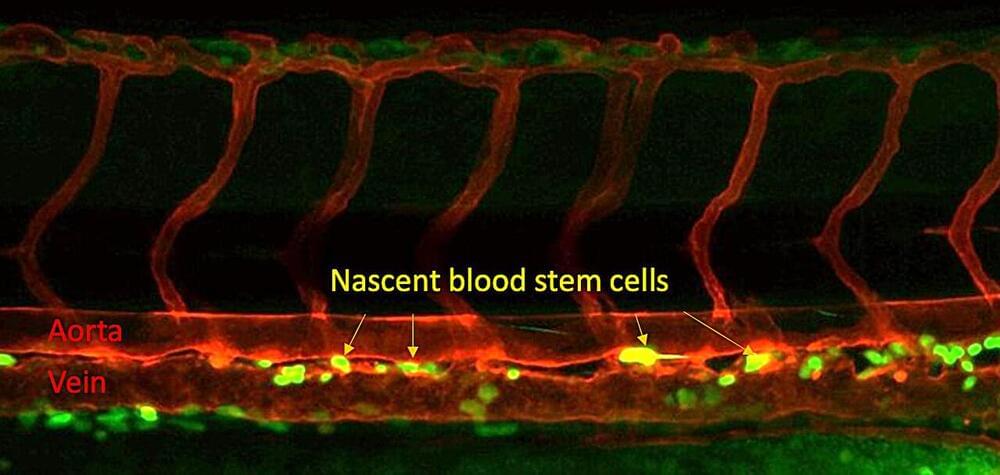A microbial sensor that helps identify and fight bacterial infections also plays a key role in the development of blood stem cells, providing a valuable new insight in the effort to create patient-derived blood stem cells that could eliminate the need for bone marrow transplants.
The discovery by a research team led by Raquel Espin Palazon, an assistant professor of genetics, development and cell biology at Iowa State University, is published in Nature Communications. It builds on prior work by Espin Palazon showing that the inflammatory signals that prompt a body’s immune response have an entirely different role in the earliest stages of life, as vascular systems and blood are forming in embryos.
Espin Palazon said knowing that embryos activate the microbial sensor, a protein known as Nod1, to force vascular endothelial cells to become blood stem cells could help develop a method to make blood stem cells in a lab from a patient’s own blood.
